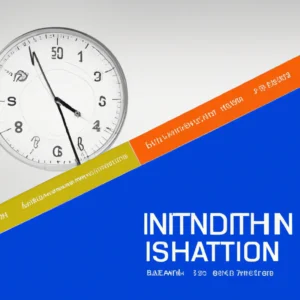Hydrate to Ignite Your Brain’s Potential!
The Impact of Hydration on Cognitive Function: Staying Sharp with Proper Fluid Intake
Staying hydrated is essential for health and cognitive function. Many people neglect the connection between hydration and mental performance. Water supports various bodily processes, especially brain function. Dehydration can impair cognitive abilities, leading to reduced mental performance. This blog explores hydration’s effects on mental acuity and offers practical hydration tips.
The Connection Between Hydration and Brain Function
Research shows mild dehydration can impair cognitive performance. The brain consists of about 75% water, and dehydration hinders optimal brain cell function. This leads to decreased focus, poor memory, slower reaction times, and problem-solving difficulties. A study in the *Journal of Nutrition* found mildly dehydrated participants performed worse on attention and memory tasks than adequately hydrated individuals.
Hydration also supports neurotransmitter production. Neurotransmitters transmit messages in the brain, impacting mood, focus, and cognition. Adequate fluid intake enhances neurotransmitter synthesis, improving communication among brain cells. Drinking enough water boosts brain efficiency and enhances cognitive function.
The Science Behind Dehydration and Cognitive Decline
Dehydration affects cognitive function through several mechanisms. It increases stress hormones like cortisol, negatively impacting mood and performance. Dehydration also reduces blood flow to the brain, decreasing oxygen and nutrients vital for optimal function.
Studies show dehydration impacts visual attention and working memory. Research in the *American Journal of Clinical Nutrition* found dehydrated individuals struggled with sustained attention and filtering distractions. This cognitive decline is concerning in high-concentration environments like workplaces or schools.
Tips for Staying Hydrated
To maintain optimal hydration, consider these tips:
1. **Drink Water Regularly**: Develop a habit of drinking water throughout the day. Carry a reusable bottle to remind yourself to hydrate. Sip water consistently instead of waiting for thirst.
2. **Set Goals**: Aim for a specific daily water intake. A common recommendation is eight 8-ounce glasses (about 2 liters), but needs may vary based on activity and climate.
3. **Eat Water-Rich Foods**: Incorporate high-water-content fruits and vegetables into your diet. Foods like cucumbers, oranges, watermelon, and strawberries help meet hydration needs.
4. **Monitor Urine Color**:
Conclusion
Staying hydrated significantly impacts cognitive function. Proper fluid intake enhances mental performance and overall health. Prioritize hydration for better cognitive abilities.
Below are related products based on this post:
FAQ
How does dehydration affect cognitive function?
Dehydration can impair cognitive abilities by reducing focus, memory, and slowing reaction times. It affects brain cell function and can lead to difficulties in problem-solving, as the brain is composed of about 75% water and requires adequate hydration for optimal performance.
What are some practical tips for staying hydrated?
To maintain optimal hydration, you can drink water regularly throughout the day, set specific daily water intake goals, incorporate high-water-content foods like fruits and vegetables into your diet, and monitor your urine color to ensure you are adequately hydrated.
Why is hydration important for neurotransmitter production?
Adequate fluid intake supports the synthesis of neurotransmitters, which are crucial for transmitting messages in the brain. This impacts mood, focus, and cognition, enhancing communication among brain cells and improving overall cognitive function.















Post Comment